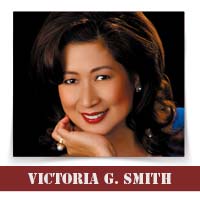
By: Victoria Smith
Between light and shadow
of sunrise and sunset, within
the folds of sand and tide
the seeker’s soul resides—here
where abide not neat answers
of black and white, nor
absolute course of destiny, but
kingdom of the limbo of doubt.
Here, we’re content to wear
the cilice of uncertainty,
laugh at the unpluckable
itch of unknowing, grateful for
our necessary exile: the test of
the alchemist’s fire.
Poet’s Notes. A friend of mine asked if I could write him a poem for his birthday. He spoke of a growing sentimentality and the inexplicable yearning of one who, like many of us who have reached a certain age, has lived a life through its various twists and turns, of a determination to move on and let go of the unessential things, of looking forward to what’s ahead. This poem was what was inspired by both his longing— and mine. For I, too, am going through a seminal period in my life.
I recently doubted my vocation as a writer. I said to my friends, “In a world where truth, reason, and principle no longer seem to matter, and where success is gauged mainly by quantifiable material results and benefits, I am starting to question whether what I do as a writer really does make a difference in this world, and thus, whether I am just wasting what little precious time I have left in this life in a practically irrelevant vocation.” Some of my friends—true as they were, were quick to both scold and encourage me. They scolded me for even doubting I’m making a positive difference through my writing, and they encouraged me to keep the faith—in my self and the good that I do. I am grateful to them for reminding me of the meaning of my life.
In recent years, I have constantly been challenged to shed my self of the inauthentic and unessential elements—whether they be family, friends, material possessions, distinctions, beliefs, or goals. And of course, when one sheds off skin that one has been wearing for some time, one is understandably left with a certain amount of disorientation. Our natural tendency is to resist uncertainty—for difficult doubt it promotes, both in ourselves and in others in whom we’ve entrusted some or all of our happiness and security. All change is inconvenient, and to varying extents, painful. This is why it’s said many people turn to religion in difficult times because religion comforts them with its absolute truths. There is indeed vast consolation in the guarantees of religion—all the answers are conveniently provided for you. One does not have to struggle to figure out the answers to the troubling questions of one’s life, although I have seen many people struggle—sometimes, fatally—with how to reconcile the reality they see and what their religions propose as truths.
I, too, have gone through such a test, and this is what I’ve concluded: Our greatest responsibility as human beings is to craft the meaning of our own lives. No one else can do this for any of us. We must do it ourselves, if we are to truly live, not merely exist as robotic followers of others’ beliefs. I am convinced that most of our contemporary problems are wrought by our stubborn clinging to the truths of other peoples at another time in human history. We are unable to adapt and craft solutions to our current problems because our beliefs remain stuck in time—and thus, necessarily, in other peoples’ ignorance and prejudices!
To live a life of true awareness is a challenge we all face everyday as we continually get distracted by petty issues, events, and false prophets and dramas. Part of that challenge is to be willing to bear the searing pain of doubt on a daily basis, to feel at home with uncertainty, to accept that we will never have all the answers—and yet still be able to keep our faith in ourselves and the relevance of our lives, if only for a brief moment in eternity. To light the heavens, if only as the fleeting yet no less true spark of a falling star means to embrace the shadows, for it is in darkness that light can shine.
God, after all, is a god of both light and shadow. In order for me to have realized, understood, and accepted this truth, I had to courageously question everything that the faith of my fathers had trained me to automatically believe. And this is also what has allowed me to craft the meaning of my own life. May you, too, dear readers, be able to achieve the same in your own lives.
(All rights reserved. Copyright © 2016 by Victoria G. Smith. For updates on her author events & publications, go to VictoriaGSmith.com. “Like” her on Facebook at Author Victoria G. Smith. “Follow” her on Twitter @AuthorVGSmith)
 VIA Times – July 2016 Issue Vital News, Vibrant Views for Asian Americans in Chicago & Midwest
VIA Times – July 2016 Issue Vital News, Vibrant Views for Asian Americans in Chicago & Midwest

